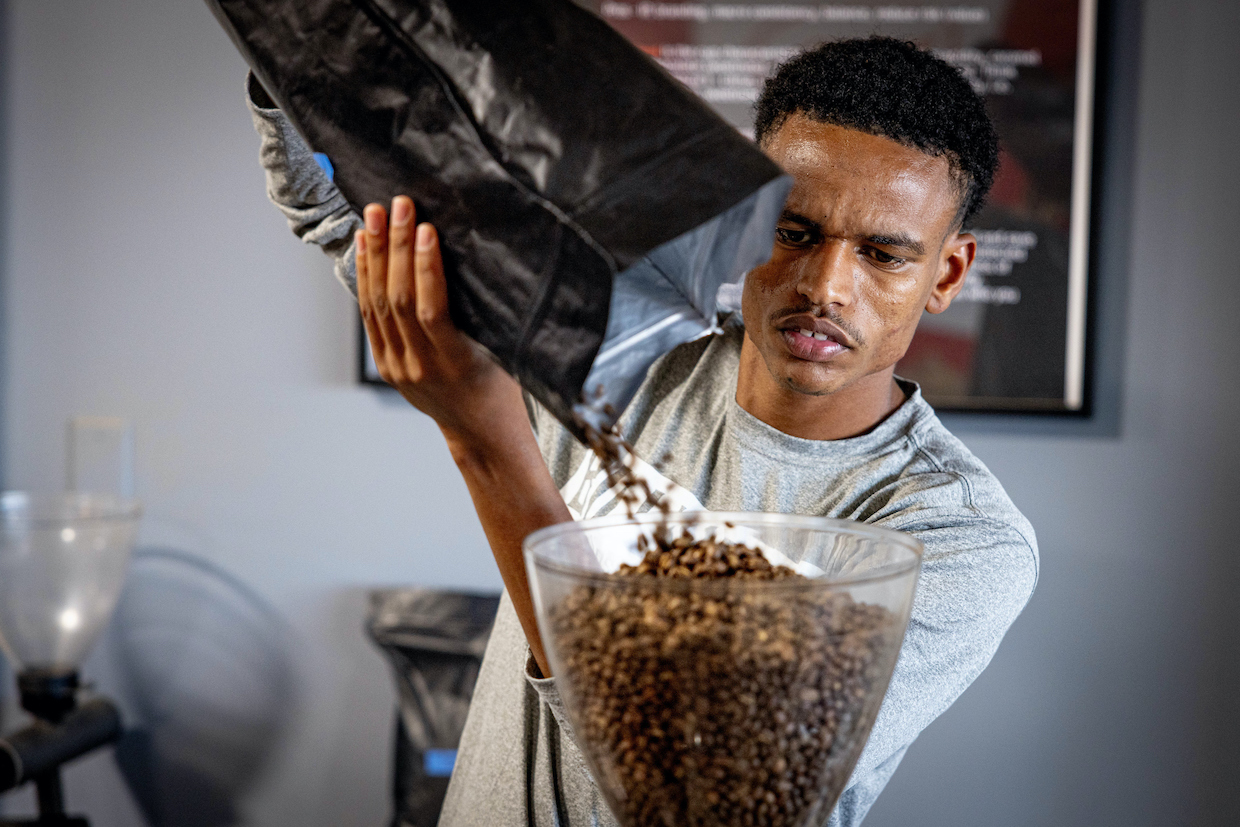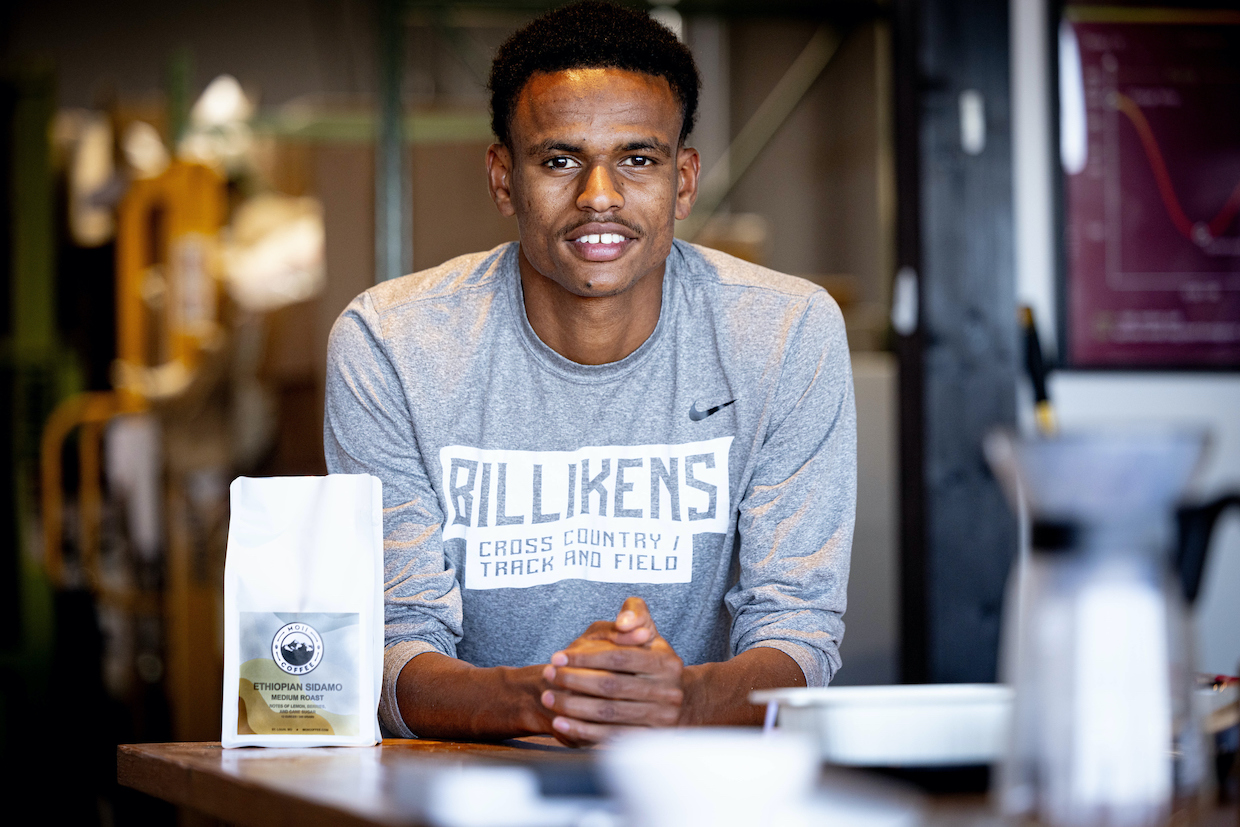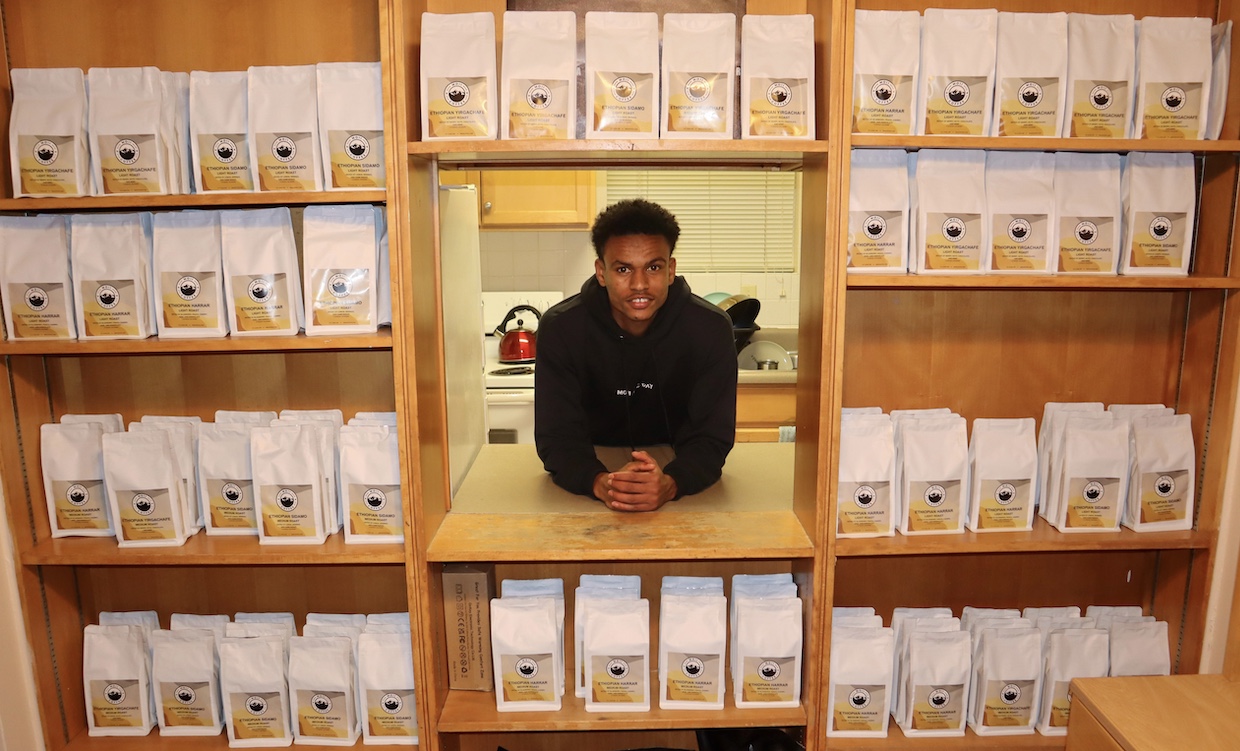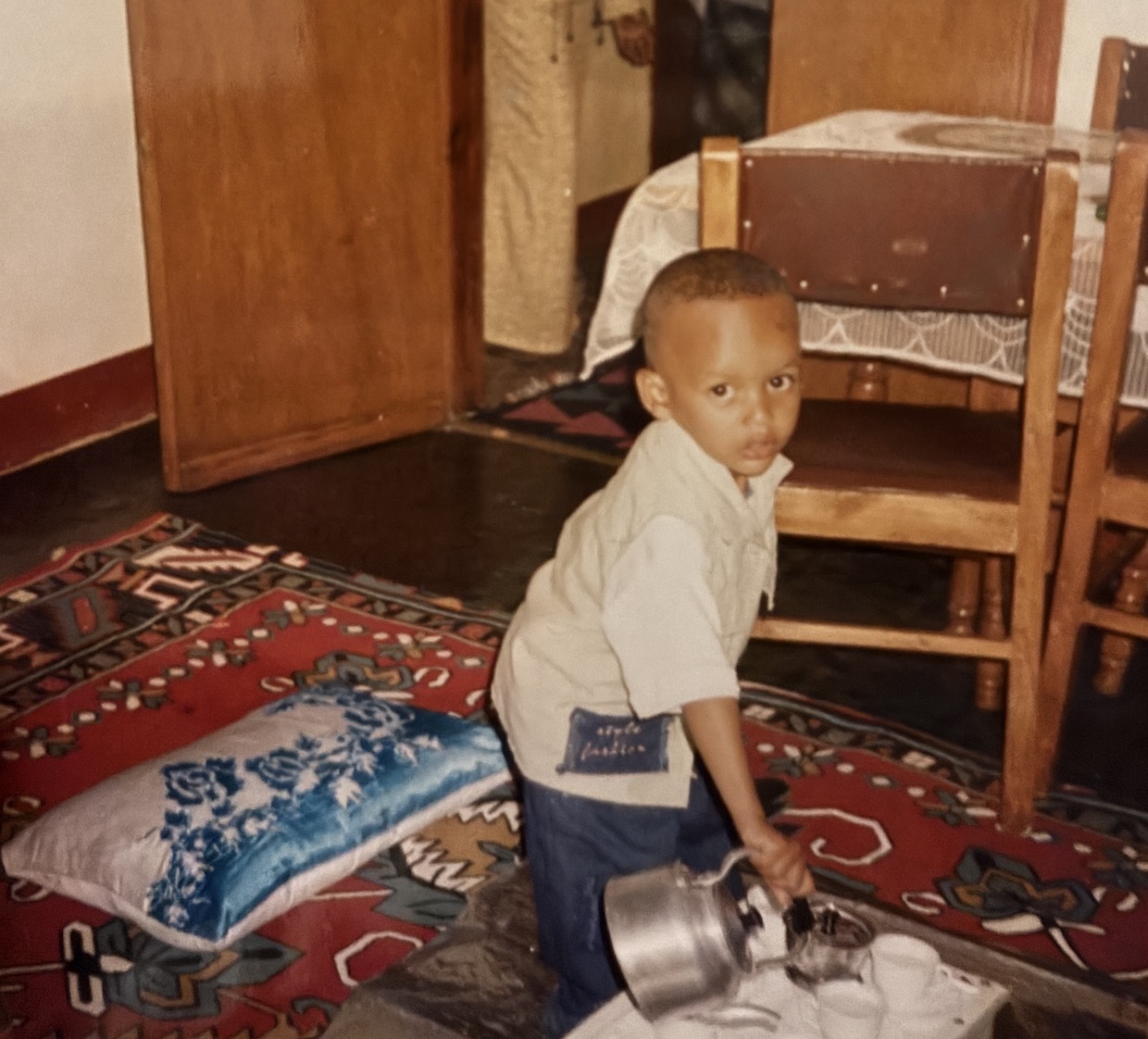On Friday, April 12, as thousands of coffee professionals were gathered in Chicago for the Specialty Coffee Expo, Saint Louis University junior Firaol Ahmed was lacing up his track shoes in Southern California.
That evening, Ahmed ran 5,000 meters in 14 minutes and 18.61 seconds, a new personal best, and an all-time top 5 performance for SLU, as part of the 2024 Bryan Clay Invitational track meet
After hopping on a red-eye flight that night, the 21-year old was on the Expo floor Saturday Morning promoting Moii Coffee, the coffee company he launched on his 20th birthday in his dorm room.
Moii means ‘to conquer’ in the Oromo language in Ethiopia. The Oromia region, where Ahmed is from, is home to the largest ethnic group in Ethiopia and is the birthplace of coffee. For Ahmed, who moved to the United States when he was a freshman in high school, coffee is deeply personal, connecting him to his home and heritage.
The word “moii” also seems to be a guiding force for Ahmed and his family. His company’s merchandise bears the slogan “Moii the Day.”
Ahmed’s great grandfather lived in a remote village in the Harrar Region that is so small it doesn’t exist on most maps. He sold coffee to intermediaries who would then sell the coffee in Yemen. Ahmed’s grandfather grew up watching these transactions, and by the age of 20 decided to sell coffee directly to the Yemeni buyers, eventually making enough money to purchase donkeys then buy a shop in the city.
“I’ve always been entrepreneurial,” Ahmed said. “I grew up watching my grandfather running a shop, so I’ve always had that mindset.”
That entrepreneurial mindset kicked in after Ahmed’s mother brought home some green coffee after a trip to Ethiopia. The two roasted it on the stovetop, then Ahmed shared it with some of his SLU track coaches and friends. They wanted more.
Said Ahmed, “I figured I should find a way to import more and sell it.”
Next, Ahmed’s aunt brought him a suitcase with 30 pounds of green coffee. He roasted the coffee and sold it in a single day. Needing more, he turned to his cousin in Colorado who owns a shop with import ties to Ethiopia, and connected with Ethiopian producer and exporter Alo Coffee.
In between classes as a double major in entrepreneurship and finance, Ahmed now receives a pallet from Denver every couple of months, transforming the beans from green to brown at a First Crack Coffee co-roasting location in St. Louis.
Ahmed has even launched a local roasted coffee service he playfully calls “Moii Prime,” in which he can deliver coffees within an hour.

Student athlete Firaol Ahmed pours beans into the grinder as he roasts Moii Coffee, his Ethiopian coffee company, on October 2, 2023.
Here’s more from DCN’s recent conversation with Ahmed…
What about coffee excites you most?
The first is that most people who love coffee haven’t even experienced what coffee could be. Most people don’t even know the true potential of coffee, so being able to contribute to allowing people to experience the potential of coffee is what excites me, and the fact that I’m in it early and the U.S. market is growing. I have the next 40 years to be able to do this, and that is what excites me.
The second is the amount of young people who are entering specialty coffee. So many people reach out to me. They’re in college and have an Instagram account where they do coffee reviews. They buy all kinds of coffee and do all kinds of brewing methods. They know everything about specialty coffee. With so many young people interested in the field, I hope more people will be able to experience what coffee could actually be.
What about coffee troubles you the most?
Coming from a family of coffee farmers what troubles me is the gap between commodity coffee and specialty coffee is growing so much. Not every farmer has the means, especially within African countries, to produce a specialty coffee, so that means that they’re being left behind. In Ethiopia where I grew up, coffee farmers are cutting down trees to grow other crops. It troubles me that most farmers don’t have the resources to produce great coffee, and God willing, I want to be able to change that. I want to be able to provide the knowledge and resources to farmers that don’t usually have the resources, so they could produce good coffee and make enough money to live off.”
What would you be doing if it weren’t for coffee?
Honestly, I’d be in college. I’d still be running.
I think at this time in my life, I’d probably be buying and selling something like shoes or clothing. Ever since I was 14, there wasn’t a period of time where I spent more than a month not doing something entrepreneurial. I think I’d be buying and selling or starting a business.
Nominate someone in coffee who inspires you for a Three Questions feature here.
Jen Roberts
Jen Roberts is a Paris, France-based writer and avid coffee drinker. She’s currently writing a book on women in coffee.









Comment